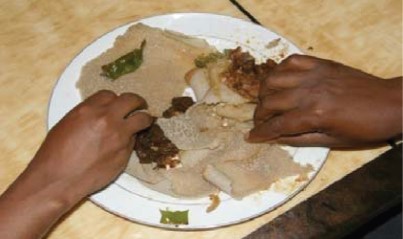13.3.2 Gender, privacy and access issues influence WASH practices
It is against Ethiopian culture for women and girls to urinate in public, but it is quite common to see men and boys urinating in the street. Access to a safe and private place for this purpose is therefore a high priority for women, who may suffer great discomfort to avoid urinating or defecating until night time when they can go without being seen. However, this also exposes them to the risk of rape or robbery. Therefore, the provision of household latrines is a gender issue: it affects males and females differently.
Another difference between the genders in most Ethiopian families is that a woman prepares all the food. If her hands are clean when she touches food items and she washes fruits, vegetables and cooking utensils in clean water, the risk of transmitting infectious organisms to family members is much reduced. Research has shown that washing the hands with soap at critical times can reduce the incidence of diarrhoeal diseases in families by as much as 44%, and even without soap the reduction is about 30% (Curtis et al., 2011). This is very important in Ethiopia, where traditional food is eaten with the hands (Figure 13.8).

Installing handwashing facilities or building a latrine for the household therefore brings benefits to women in particular, but also improves the health of all family members.
13.3.1 Economic factors influence WASH practices
